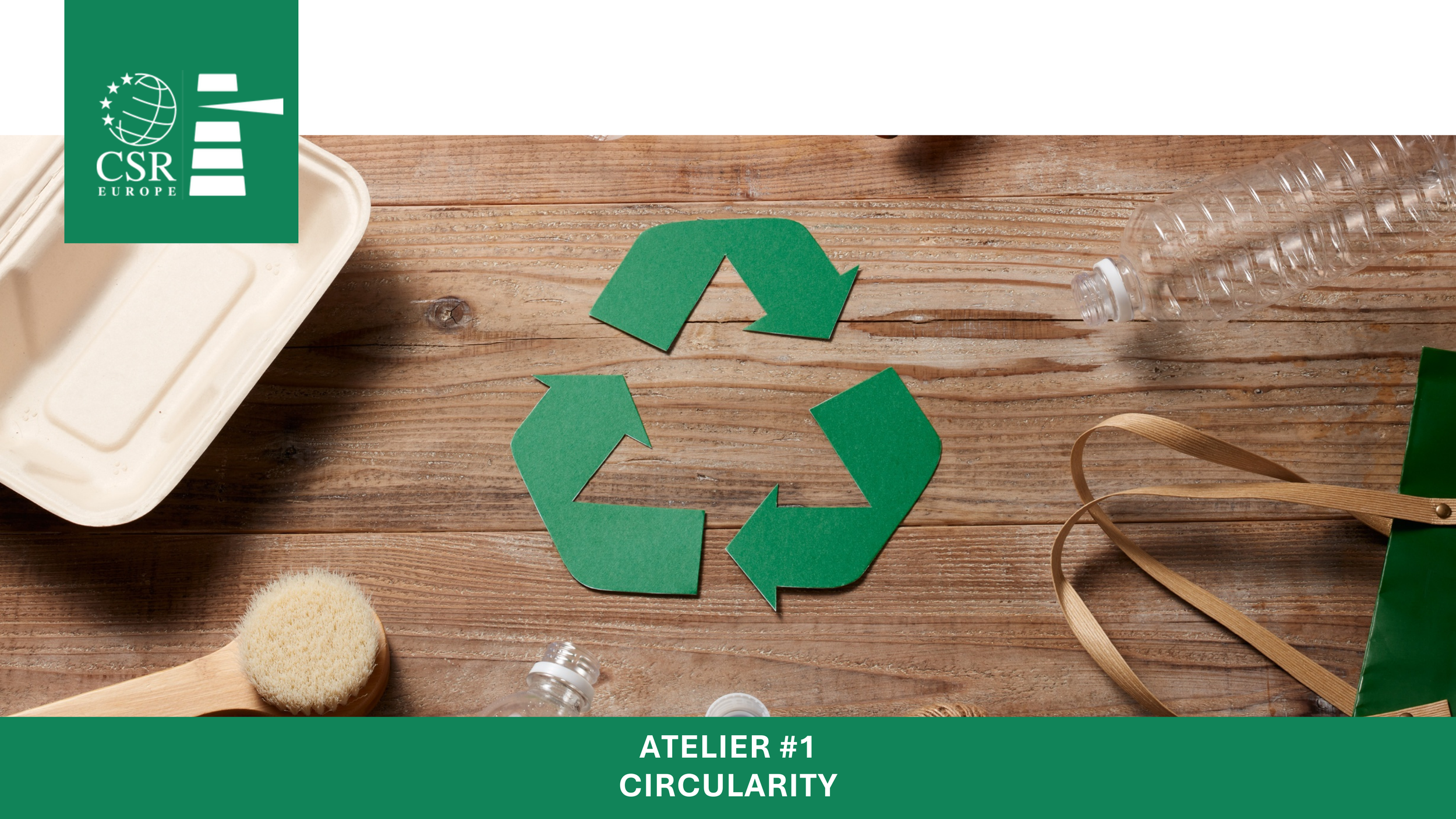EU Updates - February
EU Commission Calls for the Inclusion of Environmental Sustainability in Education and Training
Formal and informal education providers in Europe should equip learners with knowledge and skills on sustainability, climate change and the environment. This is the aim of the European Commission’s proposal for a Council Recommendation on learning for environmental sustainability published in mid-January. The initiative builds on the UN 2030 Agenda and UNESCO’s Education for Sustainable Development 2030 Roadmap to support Member States in building education and training programs fit for the green transition. As reflected in the proposal, “education and training must also take action to respond to the climate emergency and planetary crisis – in terms of its own operations and, crucially, how it prepares learners for the future”.
According to a new European competence framework on sustainability published by the European Commission’s Joint Research Centre, competences needed for a green and digital transition include critical thinking; initiative taking; respecting nature; understanding the impact daily decisions have on the environment & climate.
In the proposal, the Commission recommends Member States to:
Ensure access to high-quality and inclusive education and training on climate change, biodiversity, and sustainability.
Establish learning for environmental sustainability as a priority area in education
Provide life-long learning opportunities, supporting (also financially) traineeships, apprenticeships, and other forms of informal learning.
Invest in green and sustainable equipment, resources and infrastructure for learning, supporting cooperation and networking on sustainability and biodiversity not only at EU level, but also at local level.
Create opportunities for educators to take part in professional programmes related to sustainability and encourage new ways of learning using innovative methods as the STEAM approach.
NEXT
The Commission's proposal will be discussed by Member States and then adopted by EU education Ministers. The Commission will support the implementation of the Recommendation through learning and exchanges between Member States, stakeholders, and partner countries.
The EU’s New Strategy for Higher Education
On 18 January 2022, the European Union presented a new strategy for higher education, aimed at equipping the European youth with the skills and knowledge needed to leave no one behind amidst the green and digital transition.
Launched in the framework of the European Year of Youth, the strategy consists of two core initiatives:
1. The European Strategy for Universities
The European Strategy for Universities aims to facilitate the contribution of higher education institutions to Europe’s recovery. Four are the main objectives to be achieved by mid-2024:
Strengthen the European dimension in higher education and research, by developing a European approach with financial support to take transnational cooperation to the next level.
Support universities as lighthouses of our European way of life to deliver relevant future-proof skills and democratic values.
Empower universities as actors of change in the twin green and digital transition, equipping students and young people with the necessary skills to contribute towards a more sustainable future.
Reinforce universities as drivers of the EU’s global role and leadership, to support universities in becoming more outwards looking and competitive on the global scene.
Additionally, the European Commission has outlined a series of actions, such as the development of a European framework for diversity and inclusion, and a roadmap to address the underrepresentation of women in STEM.
2. The proposal for a Council Recommendation on building bridges for effective European higher education cooperation
The proposal aims to boost transnational cooperation among higher education institutions and facilitate the flow of knowledge.
According to the document, Member States would be invited to:
Establish a legal statute for higher education institutions alliances to allow a smooth flow of human, technical and innovation abilities.
Facilitate a joint European degree, to share and recognise European degrees through the learning outcomes achieved.
Enable higher education institutions to create innovative joint transnational education activities to share online learning and rules for credit allocation.
Support mobility in education through initiatives such as the European Student Card Initiative.
Commit to sustaining financial support for European Universities.
Promote high-quality virtual collaborative learning as an integral part of teaching, by creating virtual collaborative online platforms and implementing more effective digital strategies.
Next steps
The Commission proposal for a Council recommendation will be discussed with Member States. Once adopted by the Council, the Commission will oversee the implementation of the Council recommendation in the Member States.
For more information:
Who are the new President and Vice-Presidents of the European Parliament?
The European Parliament changed governance last 18 January, when the new President and the 14 new Vice-Presidents of the institution were elected.
THE PRESIDENT
Roberta Metsola
The Maltese MEP Roberta Metsola, member of the centre-right European People’s Party, was appointed with 458 votes out of 690, becoming the youngest President of the European Parliament ever elected. It was also the first time in twenty years, and for the third time in whole history that the European Parliament appointed a woman as President after Simone Veil (1979-1982) and Nicole Fontaine (1999- 2002). The election was possible thanks to an agreement between the three biggest parties in the Parliament: the European People’s Party, Renew (centre), and Socialists and Democrats (centre-left).
Metsola first arrived at the European Parliament in 2013. During her term as MEP, she worked on the EU roadmap against homophobia and discrimination on grounds of sexual orientation and gender identity, as well as on the European migrant crisis in 2016, when she supported the establishment of a new EU system for readmission. In her first speech to the House after the election she said:
“Dear Europeans, in the next years, people across Europe will look to our institution for leadership and direction, while others will continue to test the limits of our democratic values and European principles. We must fight back against the anti-EU narrative that takes hold so easily and so quickly”.
Even though in the past Metsola has been highly active on topics such as irregular immigration and LGBTQ+ rights, she has received severe critics for her position on the legalisation of abortion, which she strongly oppose.
President Metsola will lead the Parliament in the second half of the current legislative term, until a new Parliament is constituted following the 2024 European Elections.
THE VICE PRESIDENTS
The European Parliament has fourteen Vice-Presidents, to whom the President may appoint tasks or powers.
Othmar Karas
He is a Member of the Committee on Economic and Monetary Affairs, as well as of the Delegation for relations with the United States. He has recently worked on the Digital Services Act and the violations of fundamental freedoms in Hong Kong.
Eva Kaili
She has received the European Awards for New Technologies in 2018 for the role played in the Digital Agenda for Europe. Kaili chairs the Working Group on ICT Innovation Strategy. Responsibilities include Corporate social responsibility; Panel for the Future of Science and Technology (STOA); European Strategy and Policy Analysis System; Informatics and Telecommunications.
Pina Picierno
Picierno is an Italian politician and member of the Italian Democratic Party. She joined the European Parliament in 2014. She received the Justice and Gender Equality Award in 2019.
Pedro Silva Pereira
Pereira became a Member of the European Parliament in 2014, after serving in the Portuguese Parliament for 12 years. Since last year, he is a member of the Parliament delegation to the Conference on the Future of Europe.
Evelyn Regner
Regner participated in the negotiation for the Country-by-Country Reporting Directive - the tax transparency tool which requires large companies in terms of revenues to report their taxes divided by each Member State in which they pay them.
Ewa Kopacz
Kopacz became a Member of the European Parliament in 2019, after serving for two years as Prime Minister of Poland (2014-2015) and as Polish Minister of Health (2007- 2011). She is a Member of the Committee on the Environment, Public Health and Food Safety and of the Special Committee on Beating Cancer.
Rainer Wieland
Wieland is a Member of the Committee on Constitutional Affairs and the one on Budgets. He was also appointed Vice President of the European Parliament back in 2009, when he oversaw the relationships with the French, Belgian and Luxembourg authorities.
Dita Charanzová
Charanzová mainly deals with consumer protection, digital economy, international trade and human rights.
Michal Šimečk
Šimečka was elected vice president of the Renew Europe group at the European Parliament in 2020. He is a member of the European Parliament Intergroup on LGBT Rights and was elected rapporteur for the establishment of an EU Mechanism on Democracy, the Rule of Law and Fundamental Rights.
Nicola Beer
Beer was elected as a Member of the European Parliament in 2019 and worked on digitalisation and in the Parliament’s Delegation to the Conference on the Future of Europe. She is also a Member of the Committee on Industry, Research and Energy.
Roberts Zīle
Zīle became Minister of Finance of Latvia in 1997 and worked later on as Minister of Special Affairs for cooperation with international financial institutions. He is a member of the Committee on Economic and Monetary Affairs, and oversaw in the past the implementation of the European transport program TEN-T.
Dimitrios Papadimoulis
Dimitrios Papadimoulis (GUE/NGL)
Papadimoulis is a member of the Committee on Economic and Monetary Affairs and the Committee on Budgets. He is also a substitute member of the Committee on Regional Development (REGI).
Heidi Hautala
Hautala was elected Vice-President of the European Parliament already in 2017 and established a Working Group on Responsible Business Conduct. In her past term (2014-2019), she worked on different topics and recommendations on the management of forests and land governance. Now in her fifth mandate, she works on human rights and global justice.





















